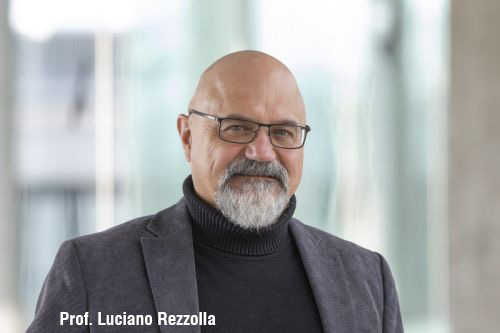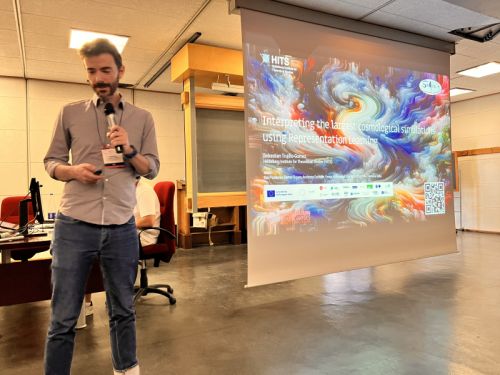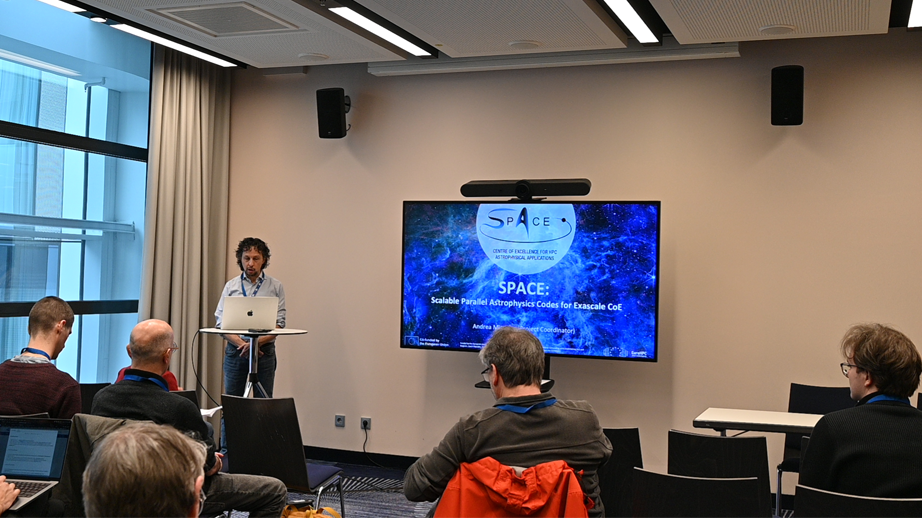news
14-15 May 2025
High-Performance Computing (HPC) Visualization Workshop
The SPACE Centre of Excellence hosted the High-Performance Computing (HPC) Visualization Workshop in a hybrid format at the Barcelona Supercomputing Center and online.
The event brought together experts in astrophysics, cosmology, and HPC to explore cutting-edge visualization techniques for managing the massive datasets produced by simulations and observational campaigns.
Key topics included distributed and in-situ visualization, parallel cinematic rendering, and visualization tools for ML-assisted analysis.
Supported by NCC Czechia, NCC Spain and CASTIEL2, the workshop highlighted the critical role of visualization in unlocking scientific insights from complex data on pre-exascale and exascale systems.
With almost 60 participants the event proved the high interest around this topic and the importance of sharing developments and best practices in science.
As part of HPC Visualization Workshop, participants had the opportunity to visit MareNostrum 5, one of Europe’s most powerful supercomputers, hosted at the Barcelona Supercomputing Center.
The visit offered a behind-the-scenes look at the cutting-edge infrastructure powering some of the most advanced simulations in astrophysics and cosmology. MareNostrum 5 plays a key role in enabling high-resolution, large-scale computations essential to the SPACE Centre of Excellence's mission to push the boundaries of scientific discovery.










